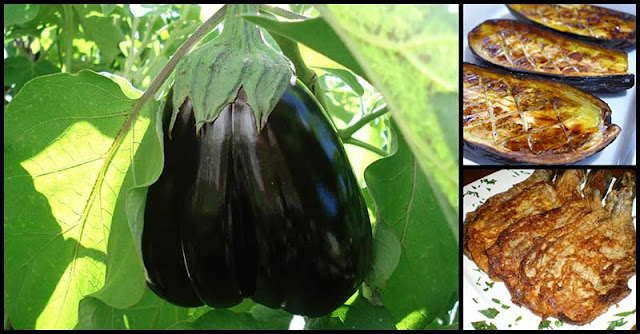Our kidneys are responsible for filtering wastes and excess fluids from our bloodstream, which are then excreted through our urine. Healthy foods are needed to protect this organ from problems that can possibly be a sign of chronic kidney disease (CKD).
CKD is kidney damage that gets worse over time and can lead to kidney failure. Once this condition reaches an advanced stage, electrolytes, fluids, and wastes can accumulate in our body and this can be fatal.
Fortunately, adding eggplant to our diet can help us promote our kidneys’ health. This veggie contains antioxidants that can help neutralize free radicals and protect our body from various diseases. Aside from this, it also has low amounts of potassium, sodium, and phosphorus, thereby making it a great choice for kidney diets. One cup of steamed eggplant contains 2 mg sodium, 167 mg potassium, and 17 mg phosphorus.
Here Are The List Of Benefits Of Eggplant For Kidneys Health
Low in Sodium
Eggplant is low in sodium, thus making it beneficial for promoting the health of our kidneys. According to studies a person should have less than 2,300 mg of sodium a day and try to keep blood pressure below 140/90 mmHg. For the purpose of maintaining our kidney’s health, it would be better if we add eggplant more often in our diet. We can try marinating eggplant in lemon, olive oil, and herbs, then cook it. Also, dipping eggplant slice in egg whites and breadcrumbs and then frying it would also be amazing.
In included on the list of foods to avoid as they contain high amounts of sodium are as follows: salted nuts, frozen breaded meats and dinners, such as burritos and pizza,; canned entrees, such as ravioli, spam and chili; smoked, cured, salted or canned meat, fish or poultry including bacon, cold cuts, ham, frankfurters, sausage, sardines, caviar and anchovies; beans canned with salt added; dairy products such as buttermilk, cottage cheese, regular and processed cheese, cheese spreads and sauces; prepackaged, processed mixes for potatoes, rice, pasta and stuffing; quick breads, self-rising flour, biscuit, pancake and waffle mixes, and many more.
Low in Potassium
Potassium can be found in many foods we eat. It helps keep our heartbeat regular and our muscles working. Our kidneys are the ones responsible for controlling the amount of potassium in our body. Unfortunately, with unhealthy kidneys, we need to limit certain foods that can increase the potassium in our blood to a dangerous level thus leading to a heart attack or irregular heartbeat.
In this case, eggplant is low in potassium and this will help prevent further health problems. Some other foods low in potassium include cabbage, carrots, grapes, apples, blackberries, blueberries, green beans, pears, pineapple, watermelon, plums, raspberries, strawberries, mushrooms, onions, and peaches.
Low in Phosphorus
Being low in phosphorus, eggplant is recommended for patients with chronic kidney disease (CKD). Individuals suffering from this disease are advised to limit certain minerals in the foods they eat in order to prevent waste build-up in the blood. In relation to this, patients should try to add eggplant in their diet.
Avoid foods high in phosphorus, which include:
Meat, poultry, and fish: a cooked portion should be about 2 to 3 ounces or the size of a deck of cards
Dairy foods: A half a cup of milk or yogurt, or one slice of cheese
Beans and lentils: Portions should be about a half a cup of cooked beans and lentils
Nuts: Reduce your portion sizes to about a quarter of a cup
Cut out bran cereals, oatmeal, colas, and some bottled iced teas
Other Health Benefits of Eggplant
- Have Anti-cancer effects
- Promotes Weight Loss and Satiety
- Improves Circulation
- Maintains Blood Pressure
- Reduces Cholesterol
- Promotes liver Health
- Source of Antioxidant (flavonoids and polyphenols)
Consume eggplants by boiling, frying, or adding it into soups. This healthy veggie is high in nutrients needed by our body to function at its best.









